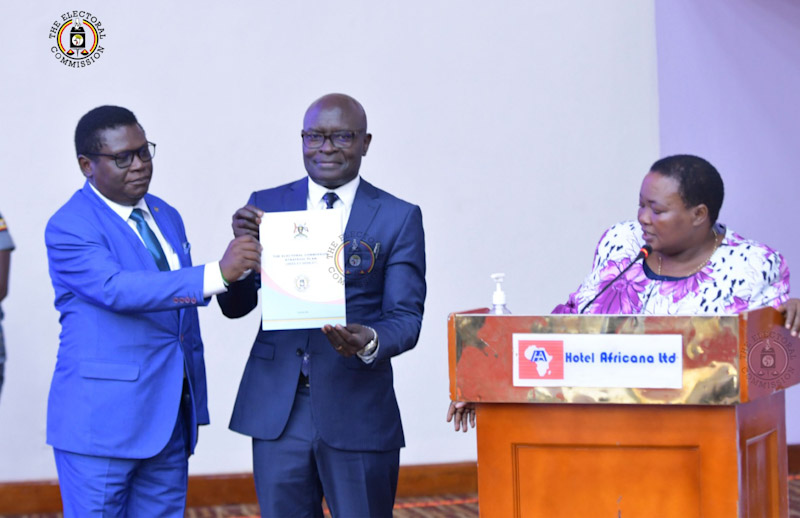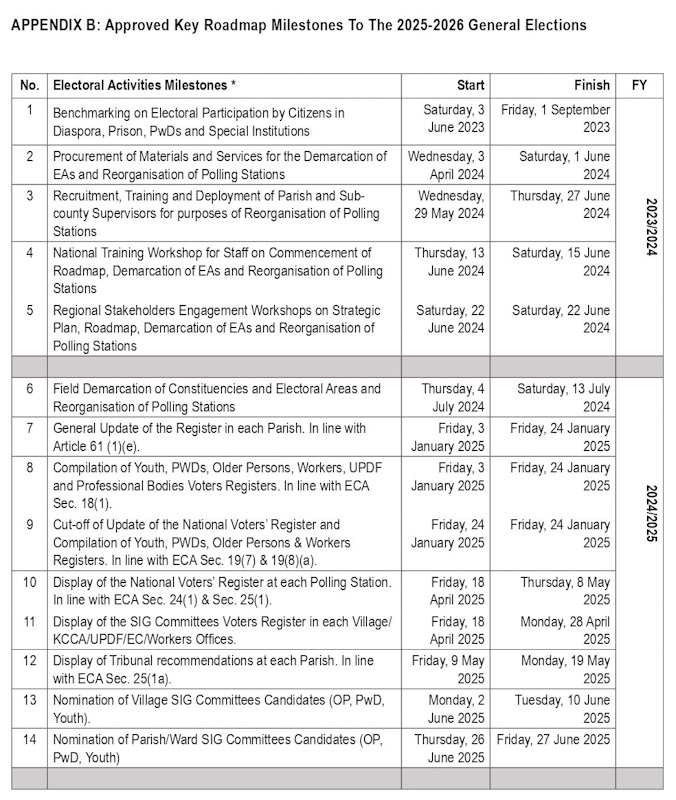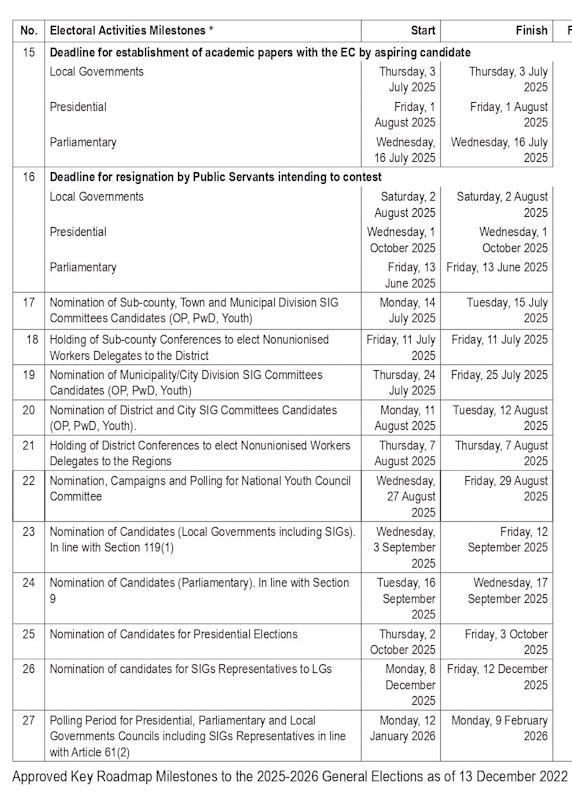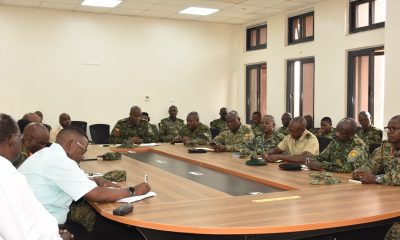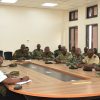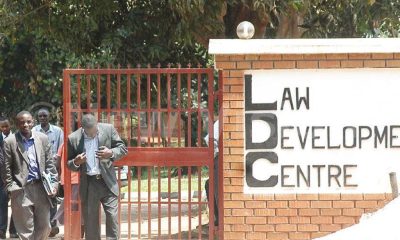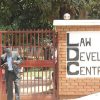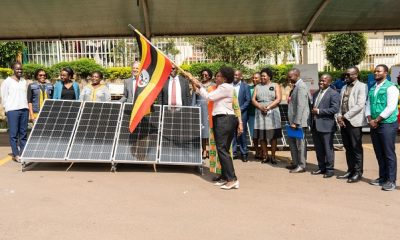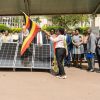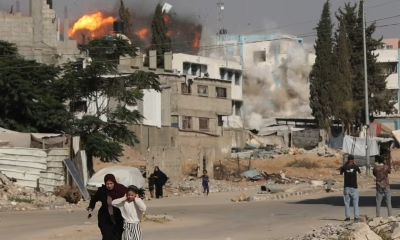News
Electoral Commission unveils 2025-2026 electoral roadmap
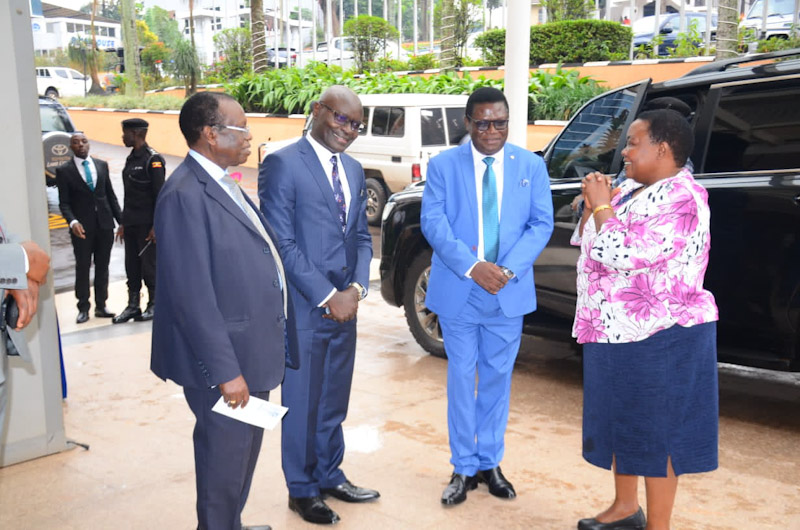
Prime Minister Robinah Nabbanja (right) Minister Norbert Mao, EC Chairman Justice Byabakama 3rd right at the unveiling of the 2026 Uganda electoral roadmap at Hotel Africana in Kampala August 2,2023
The Electoral Commission has set January 12 to February 10, 2026 as the period during which Ugandans will cast their votes to choose their leaders at Presidential, Parliamentary and other local government elective positions.
Speaking at the launch of the Electoral Commission Roadmap 2025-2026, the Secretary of the Electoral Commission Leonard Mulekwah noted that procurement of materials and services for the demarcation of the Electoral Areas and reorganization of polling stations is scheduled to start in May and finish in June 2024.
According to the roadmap the general update of the National voters register in each parish which is a key activity for any electoral process will commence on the January 3 and end on January 24, 2025.
Below is the outline of the activities of the Electoral roadmap.
Mulekwah further revealed that the nomination of candidates for parliamentary elections will start on September 16 and 17 followed by the Nomination of Candidates for Presidential Elections slated for October 2 and 3rd.
Mulekwah called on political players to embrace both the strategic plan and the roadmap and also consider the EC’s proposed roadmap for political parties for better preparation and participation in the forthcoming general elections.
“We’ve had situations where nominations start but political parties are still struggling with unresolved issues. We’re going to try to ensure that they have their candidates and registers in time so that they are able to participate in time,” said Mulekwah.
The Electoral Commission Chairperson Justice Simon Byabakama appealed to the Executive and Parliament to ensure timely amendment and enactment of relevant electoral laws which impact overall elections planning and budget.
Byabakama also warned political players to desist from engaging in open political campaigns before the right time despite having the liberty to conduct internal party activities as per the political dispensation.
Byabakama said: “As we speak now we don’t have any candidate or activity that we have announced that is going to be rolled out in the country inviting members to present their candidates. But we recognise that we operate under a multiparty political dispensation and we have a number of political parties. My understanding is that these political parties have delivered, provided that they operate within the law,” said the EC chairman Justice Byabakama.
Launching the Electoral Commission and Roadmap to the 2026 General Elections, the Prime Minister Robinah Nabbanja pledged government’s commitment to ensure that electoral law reforms are executed in time to facilitate the democratization process of the country.
Nabbanja assured the country that the NRM government will ensure required funds are appropriated to support the Electoral Commission executes its mandate as per the road map.
Nabbanja said: “The Office of the Prime Minister will ensure that the enactment of the relevant laws is done before the end of the current financial year 2023/2024.”
She further promised to ensure that funds required by the EC are made available on time for the efficient implementation of the roadmap.
“The Office of the Prime Minister will make sure that the required funds are released to the Commission to smoothly execute the activities as outlined in the Roadmap for the next general election,” said Nabbanja.
Nabbanja also promised that the creation of administration units are done in accordance with the timeline of the roadmap as presented by the Electoral Commission to avoid adversely affecting its budget.
The Minister of Justice and Constitutional Affairs Norbert Mao revealed recently at the homecoming fete to the NRM that he plans to table before parliament Constitutional and electoral law amendments in the next three months.
Some of the anticipated reforms include provisions that will give prisoners and Ugandans in the diaspora the right to vote.
Impeccable sources reveal that the EC has a tentative budget of about UGX1.3 trillion, higher than the UGX868bn spent in the last 2021 elections. The expansion of the electorate and polling stations are some of the reasons being suggested as causes for the increased spending.
Comments



